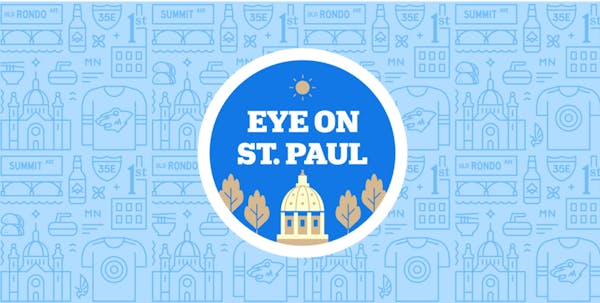The idea seemed so crazy that it just might work.
Combine the loyal customer base of St. Paul's oldest gay bar with the buzz coming from a shiny new soccer stadium nearby — filled with thirsty fans — and the Black Hart of Saint Paul seemed perfectly positioned to bask in the glow of "the Beautiful Game." After opening at the former Town House to steadily growing crowds, what could go wrong?
Answer: COVID-19.
Two years of quarantines, no crowds, restricted crowds, games cancelled, games postponed and outbreaks have left owner Wes Burdine looking for what he hopes will be the Black Hart's first uninterrupted year.
Last week, with the pandemic seemingly easing and Minnesota United getting ready to host its first home game of 2022, Eye On St. Paul dropped in on Burdine to catch up.
This interview was edited for length.
Q: You opened to great anticipation. Then COVID hit. What did it do to you?
A: A lot. We have never had a full year of normal business. You can't do a drag show, you can't have people crowded around a stage, when you're not supposed to be near each other.
We have had three shutdowns. The first one was obvious [March to June 2020] — everyone was shut down. And then the second one was later that year, November to early January. And this year we did one on our own over New Year's for seven days, right as omicron hit. We have had no [staff] infections for just about all of COVID. And then just about half the staff got it.
Q: How did you survive?
A: The three primary points we hit are: We're a neighborhood bar — there aren't many places in the Midway where you can go grab a drink with a friend on a Tuesday afternoon. We are the oldest gay bar in St. Paul. And then we've got soccer, which is a little bit of both those groups already.
When it's buzzing, it's great. But when it's scaled down like [2020], we're just trying to make sure [employees are] in OK shape. We relied on the regular patrons, 15 people, to come in every day. Those 15 people kept the lights on.
Q: Did you get government help?
A: Yes. [County, city, state and federal]. And that allowed us to come out of it in really good shape. Still not normal yet. But June and July 2021 were the busiest we've ever been. And I'm expecting a good spring.
Q: Do you feel a little snakebit — or fortunate?
A: I feel completely fortunate. I don't have some secret trove of wealth to maintain this place. So, when we shut down in March of 2020, we could have folded and sold to a developer within a month and a half. We just didn't have any business savings.
All the various ways that we found support, including people buying gift cards and shirts, kept us alive.
Q: Can you imagine a full, steady year?
A: Yeah. I can imagine. I can imagine giving a paycheck to myself. [laughs]
There are ways in which I imagine this place to be long-term successful. So that, every year, we're increasing wages and every year we're able to do more. Such as paint the Megan Rapinoe mural [on the east side of the building]. People can now say we can drink at that place that has the beautiful mural. Making it a cooler, nicer place is something that we all can enjoy.
Q: How did you get the idea to bring soccer and a gay bar together?
A: To be honest, when I knew the stadium was coming in, I knew there would be a need for a soccer bar. But I had avoided looking at this place because I thought "Well, if I put a sports bar in a gay bar spot, I'd be tarred and feathered by my own friends." But it really came down to talking to [the retiring owner of the Town House] and the more I thought about it, the more I imagined a space that where it was possible.
My worst fear was that people would be here for one reason and then have this group overrun them. I still get kind of anxious when there are semi-overlaps. But, for the most part, it's been pretty seamless.
This is not a place that flips a switch, that transforms from being a gay bar into a soccer bar and then back again. It was really important to us to forward that this is a queer soccer bar.
One of the first times I came in here [before buying] was a Thursday, 4 p.m., there weren't many people in the bar. But along the bar were three trans women. And I thought, "OK, how can I create a space and make sure that someone who's trans feels safe?"
Now, on game day, they may still feel out of place. But 70 percent of the people there know that a drag queen is going to walk by and they're not going to bat an eye.
Q: Any regrets?
A: No. Being a part of this has been an extremely life-affirming process.
Every year, during Pride Week, I'll come out here for a Friday night show. Everyone's excited. And people are so free, and the feeling is pretty infectious. Especially after last year — COVID was tough. Seeing people out there in a room, happy, it just felt really good. Finding ways to bring people together, when you get to do it, it's really a great feeling.

How Minnesota House Republicans ended the DFL's state government trifecta
Project 2025 platform proposal aims to allow mining in Boundary Waters watershed

Ann Johnson Stewart wins special election, giving DFL control of Minnesota Senate

Democratic U.S. Sen. Amy Klobuchar defeats GOP challenger Royce White


